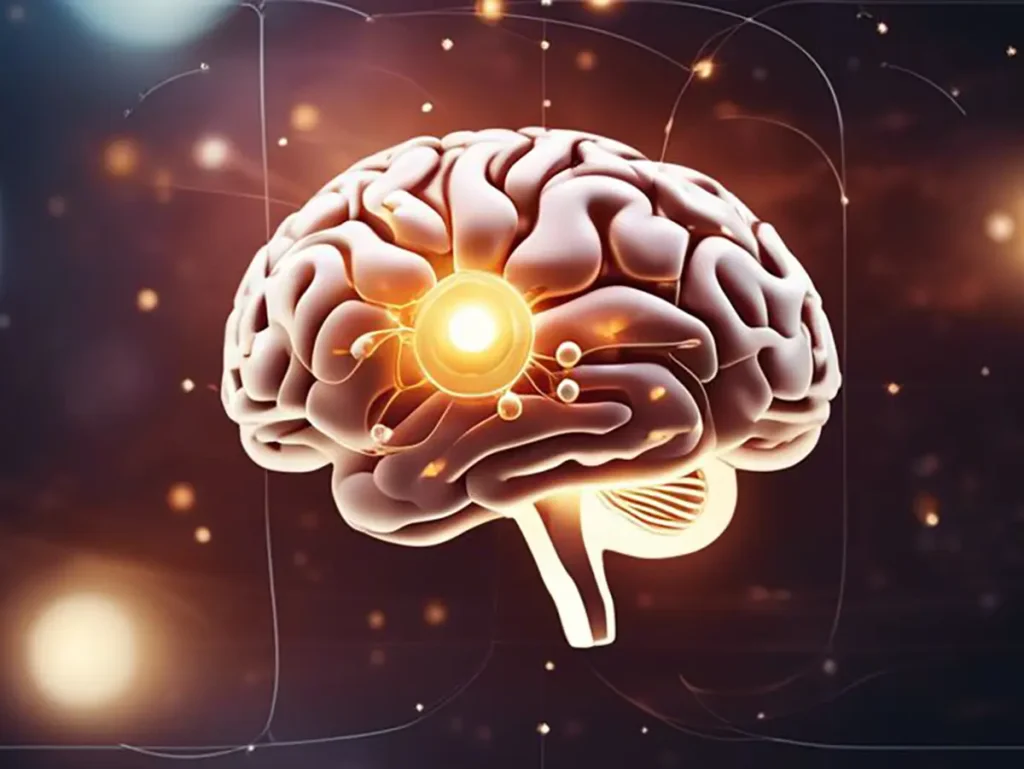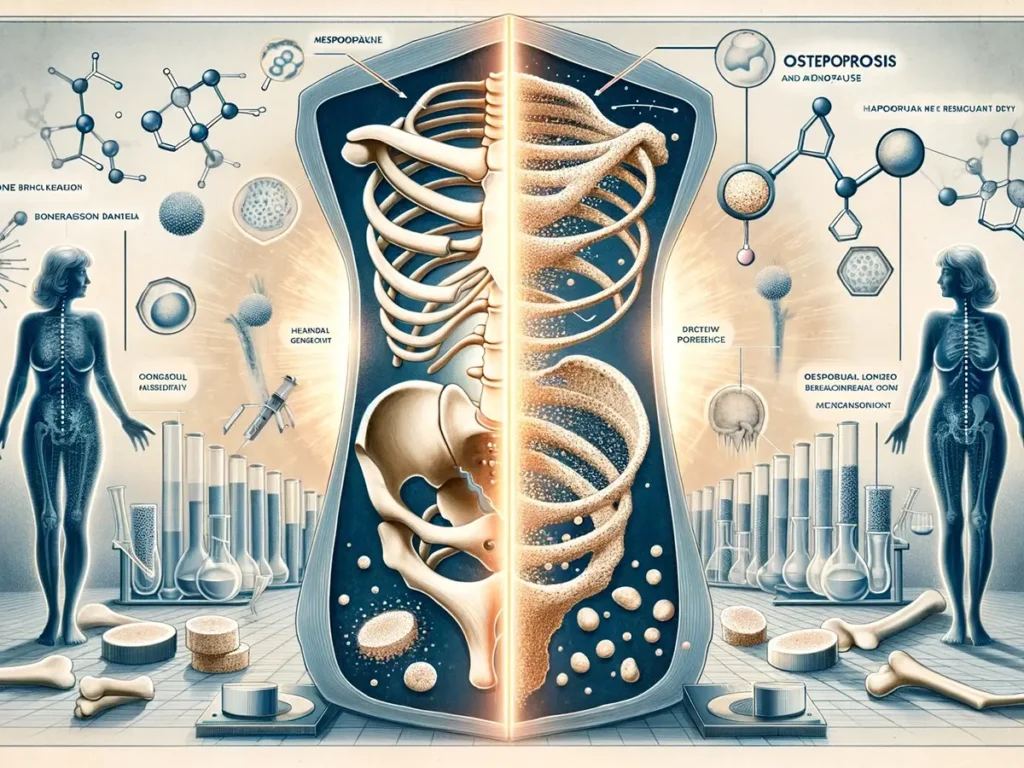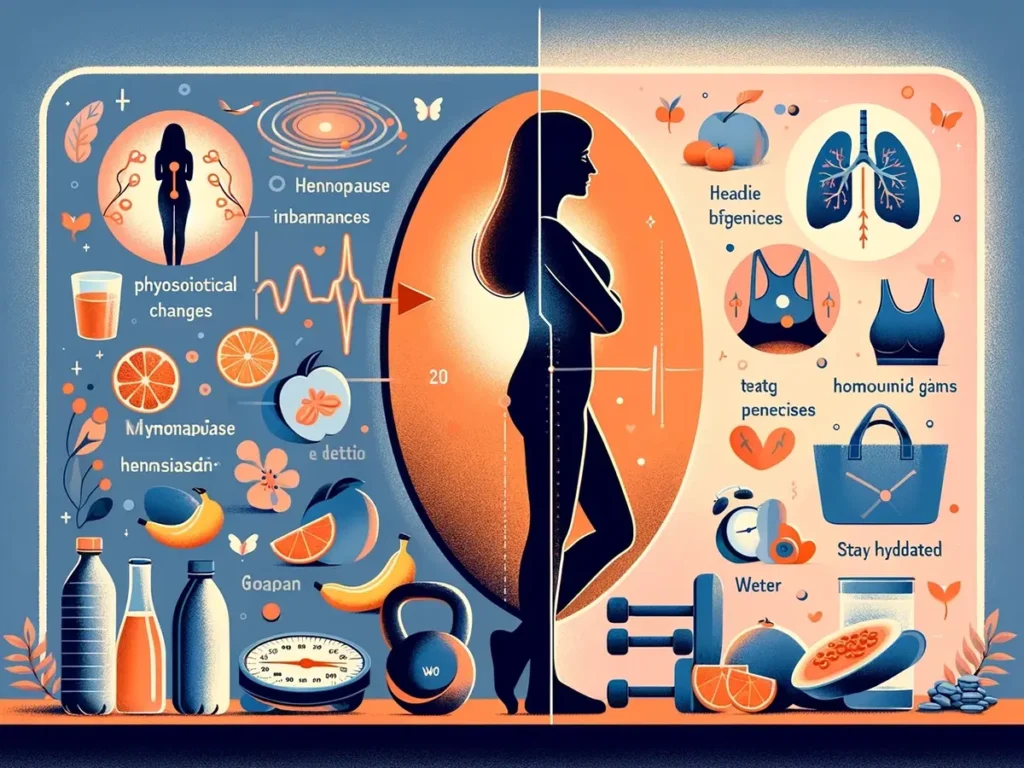Often, women going through menopause may experience memory lapses and forgetfulness, leading to the coining of the term ‘menomnesia’ to describe this phenomenon. While some may dismiss these memory issues as a normal part of ageing, research suggests that the hormonal changes occurring during menopause can impact cognitive function. Understanding the connection between menopause and memory loss is crucial in addressing this often-overlooked aspect of women’s health.
Key Takeaways:
- Menopause can impact memory: Hormonal changes during menopause can result in forgetfulness and difficulty concentrating, commonly referred to as “menomnesia.”
- Research on menomnesia is ongoing: While some studies suggest a link between menopause and memory loss, more research is needed to understand the relationship and potential treatments fully.
- Strategies to improve memory during menopause: Regular exercise, getting enough sleep, practising mindfulness techniques, and maintaining a balanced diet can help support cognitive function during this period of hormonal transition.
Understanding Menopause
Menopause is a natural biological process that marks the end of a woman’s menstrual cycle. It is diagnosed after 12 consecutive months without a period and typically occurs in women in their late 40s to early 50s. Menopause is a significant stage in a woman’s life, signalling the end of her reproductive years.
Stages of Menopause
Menopause is divided into three stages: perimenopause, menopause, and postmenopause. Perimenopause begins several years before menopause when the ovaries gradually produce less estrogen. Menopause occurs when a woman has not had a period for 12 consecutive months, and postmenopause follows after menopause.
Common Symptoms Associated with Menopause
With menopause comes a variety of symptoms that can vary in severity and duration. Common symptoms include hot flashes, night sweats, mood swings, vaginal dryness, and sleep disturbances. These symptoms can significantly impact a woman’s quality of life and well-being.
Menopause is a natural transition in a woman’s life, but the symptoms associated with it can be challenging to manage. It is essential for women going through menopause to seek support and guidance from healthcare professionals to navigate this phase with ease.
The Science of Memory
Memory, a complex cognitive phenomenon, is a fascinating subject of study in psychology. Our memory shapes our identities, experiences, and daily lives. Understanding how memory operates can shed light on various memory-related conditions, such as menomnesia.
How Memory Works
Any discussion about memory must consider the processes involved in creating, storing, and recalling information. Memory can be broken down into three main processes: encoding, storage, and retrieval. Encoding involves converting sensory information into a form that can be stored in memory. Storage is the retention of encoded information over time. Finally, retrieval is the ability to access stored information when needed.
Types of Memory Affected by Aging
An important aspect of memory often impacted by ageing is the distinction between short-term and long-term memory. Short-term or working memory is responsible for holding and manipulating information for brief periods. Long-term memory, however, involves storing information for extended periods, ranging from days to a lifetime.
- Short-term memory
- Long-term memory
Perceiving the differences between short-term and long-term memory can help understand memory-related conditions like menomnesia. Short-term memory decline can lead to forgetfulness in daily tasks, while long-term memory issues can affect recollecting past events and experiences.
| Short-term memory | Long-term memory |
| Responsible for holding and manipulating information briefly. | Stores information for extended periods, ranging from days to a lifetime. |
Examining ‘Menomnesia’
Your journey into understanding ‘menomnesia’ begins here, where we delve into the concept and explore its potential impact on memory during menopause.
The Concept of ‘Menomnesia’ Explained
Explained: ‘Menomnesia’ is a term that combines ‘menopause’ and ‘amnesia,’ highlighting the potential memory challenges women may experience during this stage of life. The hormonal fluctuations and changes during menopause can affect cognitive function, including memory processes.
Anecdotal Evidence and Personal Accounts
Anecdotal Evidence and Personal Accounts: Many women report experiencing memory lapses or difficulties during menopause, attributing them to ‘menomnesia.’ While scientific research is ongoing to understand this phenomenon fully, personal stories provide valuable insights into the potential impact of menopause on memory.
For instance, women going through menopause may forget appointments, struggle to recall words, or have trouble concentrating. These experiences, though subjective, contribute to the growing body of evidence suggesting a link between menopause and memory issues.
Hormonal Changes and Memory Loss
Not uncommonly, women approaching or experiencing menopause may find themselves grappling with memory issues. This can be attributed to the hormonal changes that come with this stage of life, particularly the decrease in estrogen levels.
Estrogen and Cognitive Functions
Estrogen can influence cognitive functions such as memory, attention, and verbal abilities. The hormone plays a crucial role in maintaining neuronal health and promoting neurotransmitter activity in the brain, both essential for optimal cognitive performance.
Research suggests that lower estrogen levels during menopause may impact cognitive functions, including memory formation and retrieval. Women going through menopause often report experiencing forgetfulness, mental fogginess, and difficulty concentrating, which can all be linked to hormonal fluctuations.
Impact of Hormonal Fluctuations on Memory During Menopause
On top of the direct effects on cognitive functions, hormonal fluctuations during menopause can also contribute to memory issues. Estrogen receptors are abundant in the hippocampus, a brain region crucial for memory consolidation.
To better understand the link between hormonal fluctuations and memory during menopause, researchers are exploring how hormone replacement therapies and lifestyle changes can potentially mitigate memory loss in this demographic. Strategies such as hormone therapy, cognitive training, and healthy lifestyle habits may help alleviate some of the memory challenges associated with menopause.
Research Findings on Menopause and Memory
Despite the growing interest in understanding the relationship between menopause and memory, the scientific community continues to explore the exact mechanisms behind this potential connection. Research findings have provided valuable insights into menopause’s impact on memory and cognitive function.
Review of Key Studies and Clinical Trials
Trials examining the effects of menopause on memory have yielded mixed results. Some studies suggest that hormonal fluctuations during menopause can lead to cognitive changes, including difficulties with memory retention and recall. However, other research highlights the complexities of this relationship, noting that factors such as age, genetics, and overall health can also play significant roles in cognitive function during menopausal transitions.
Trials investigating the impact of hormone therapy on memory outcomes in menopausal women have shown inconsistent findings. While some studies suggest that hormone replacement therapy may improve cognitive function and memory, others have raised concerns about potential risks and side effects associated with this treatment.
Evaluating the Strength of the Evidence
Trials evaluating the strength of the evidence linking menopause and memory face challenges in controlling for confounding variables and establishing causality. Researchers often encounter difficulties in isolating the specific effects of menopause on memory, as other factors can influence cognitive performance. Despite these challenges, ongoing research efforts aim to provide a more comprehensive understanding of how menopause may impact memory function in women.
Menopause represents a complex biological transition that can affect various aspects of a woman’s health, including cognitive function. While research findings on the relationship between menopause and memory continue to evolve, it is essential to consider the limitations of current studies and the need for further exploration to elucidate this intricate connection.
Coping with Memory Changes During Menopause
Many women experience memory changes after entering menopause, which can be frustrating and challenging to cope with. However, strategies and treatments are available to help manage these memory changes and improve cognitive function during this transitional phase of life.
Lifestyle Adjustments to Improve Memory
Simple lifestyle adjustments can ease the burden of memory changes during menopause. Regular physical exercise, a healthy diet rich in Omega-3 fatty acids and antioxidants, and adequate sleep can all support brain health and improve memory function. Additionally, stress-reducing activities such as meditation or yoga can help enhance cognitive abilities and overall well-being.
Medical and Alternative Treatments
Medical interventions and alternative treatments can also be beneficial in managing memory changes during menopause. Hormone therapy, under the guidance of a healthcare provider, can help alleviate symptoms associated with hormone fluctuations that may impact memory. Additionally, supplements like ginkgo biloba or cognitive training programs may offer support in enhancing memory and cognitive function during menopause.
It is essential for women experiencing memory changes during menopause to consult with their healthcare provider to determine the most appropriate treatment plan for their individual needs. A comprehensive approach that combines lifestyle adjustments, medical treatments, and alternative therapies can help women effectively cope with memory changes and maintain cognitive well-being during menopause.
Final Words
Following this exploration of the link between memory loss and menopause, it is essential to recognize that ‘menomnesia’ is not a medically recognized condition. While memory issues may be a common symptom of menopause, they are generally mild and temporary. It is crucial for women experiencing memory problems during menopause to consult with their healthcare provider to rule out any other underlying medical conditions that may be causing the symptoms.
Understanding the potential impact of hormonal changes on memory can help women navigate this transitional phase with more awareness and support. By staying proactive about overall health and wellness, women can better manage any cognitive changes they may experience during menopause and maintain optimal brain function as they age.
FAQ
Q: What is menomnesia?
A: Menomnesia is not a recognized medical condition; instead, it is a term used colloquially to describe memory loss that may occur during menopause.
Q: What is the link between memory loss and menopause?
A: The fluctuation of hormones during menopause, particularly estrogen, can impact cognitive function and memory in some women. This can result in symptoms such as forgetfulness and difficulty concentrating.
Q: Is memory loss during menopause temporary or permanent?
A: Memory issues during menopause are often temporary and improve once hormone levels stabilize. However, in some cases, cognitive changes may persist post-menopause and require further evaluation by a healthcare provider.
Q: How can menopausal memory loss be managed?
A: Implementing lifestyle changes such as regular physical exercise, a balanced diet, stress management, and adequate sleep can help support cognitive function during menopause. Cognitive training exercises and hormone therapy may also be considered in consultation with a healthcare provider.
Q: When should I seek medical help for memory issues during menopause?
A: If memory loss significantly impacts daily life, worsens over time, or is accompanied by other concerning symptoms, it is advisable to consult a healthcare provider for proper evaluation and management. Remember, early intervention can lead to better outcomes.






